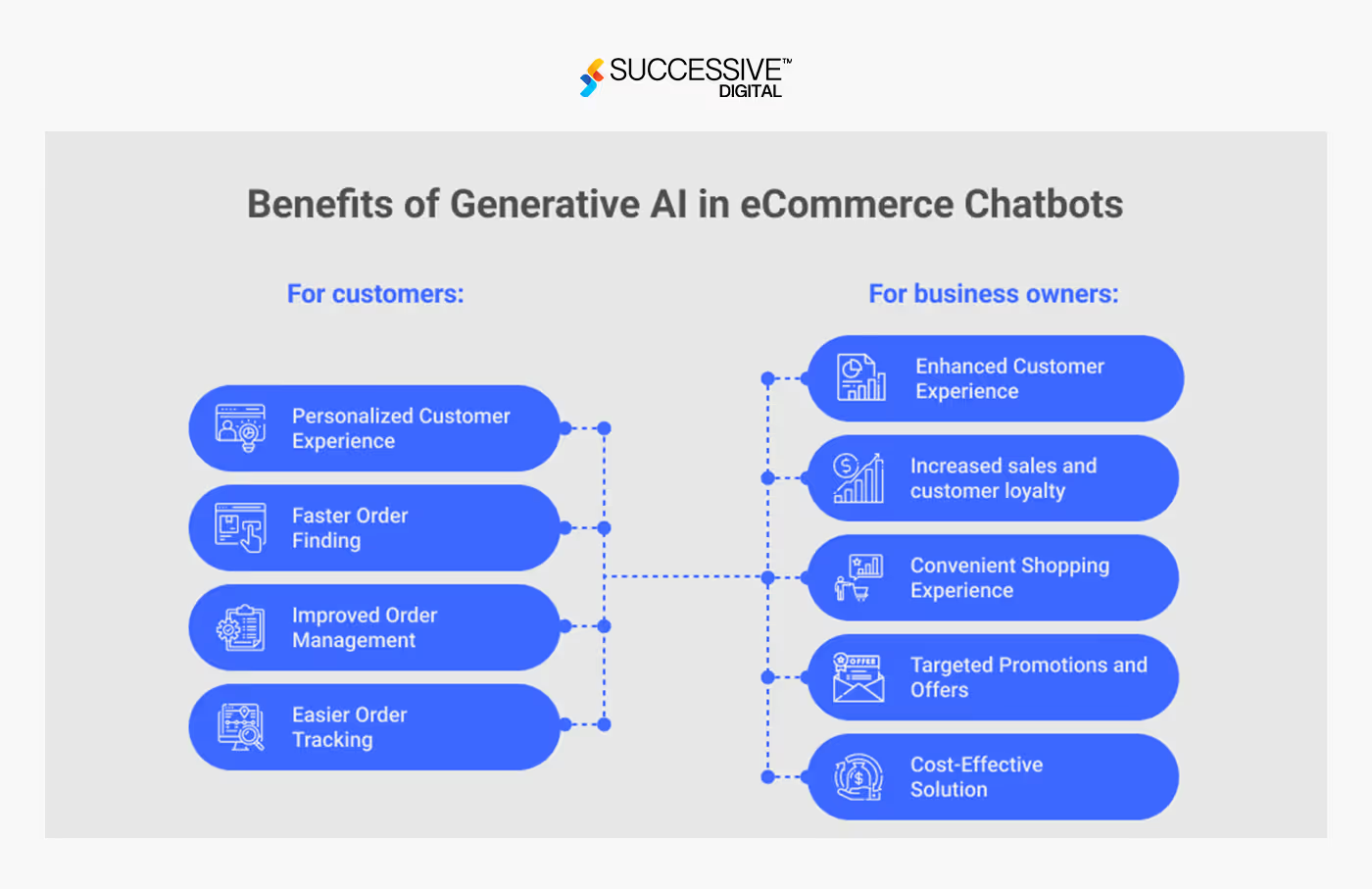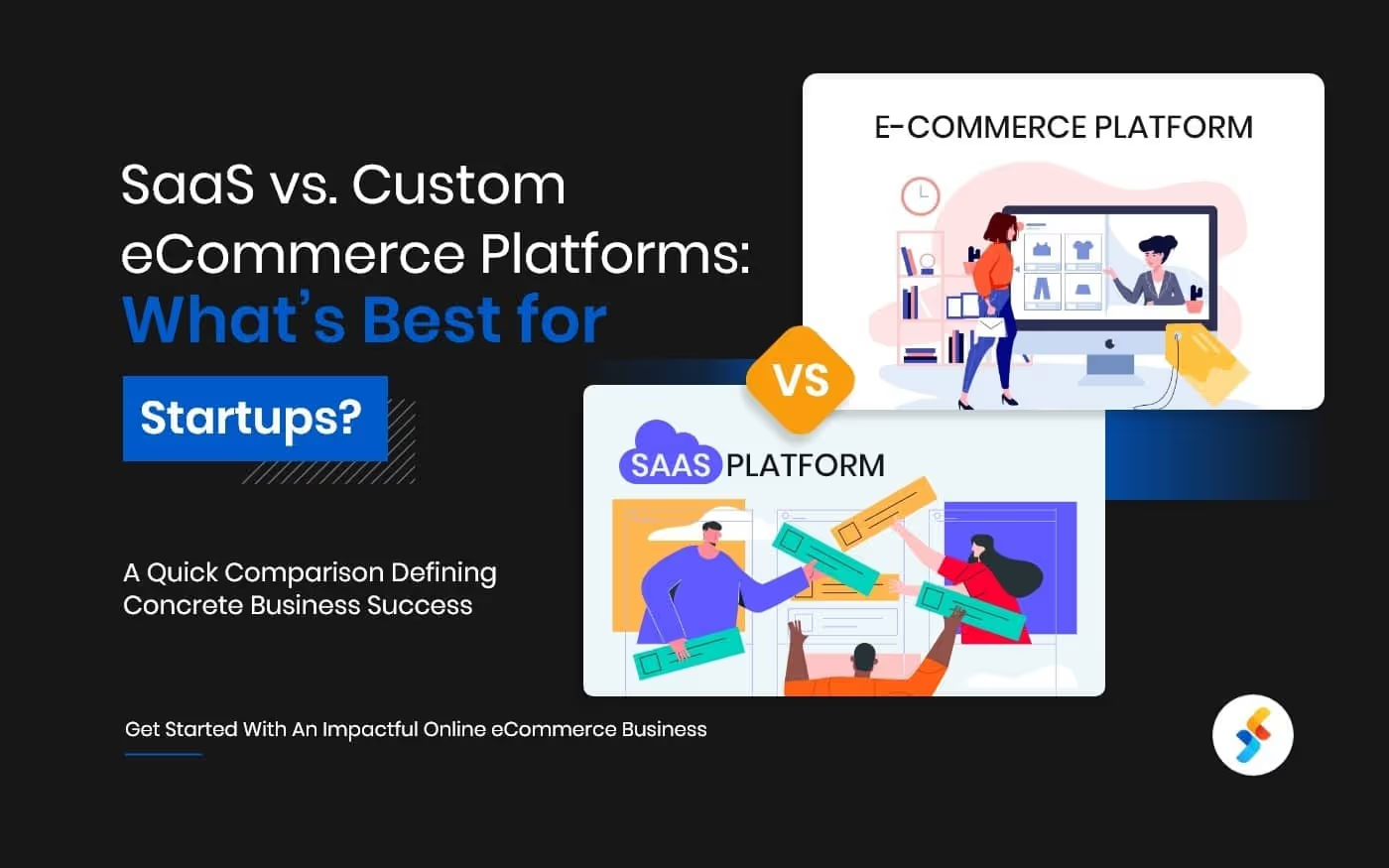In the evolving global ecommerce space, providing extraordinary customer experience is paramount to attaining success. With businesses looking for competitiveness in a crowded digital marketplace, customer service satisfaction is a pivotal factor that distinguishes brands. As digital transformation continues to reshape conventional customer service, progressive technology solutions are emerging to satisfy the evolving needs of online purchasers. Among these solutions, integrating AI chatbots into ecommerce structures has garnered significant attention and adoption.AI chatbots represent a fundamental shift in introducing modern customer service, imparting a scalable and customized method to managing customer interactions. These digital assistants harness advanced algorithms, including natural language processing (NLP) and machine learning (ML), to interact with customers in real time, apprehend their inquiries, and push relevant responses. Unlike conventional customer support channels, AI chatbots operate round-the-clock, ensuring that help is available to clients anytime and anywhere.This blog explores AI chatbots' potential for e-commerce, examines their diverse advantages, showcases successful implementations, and outlines best practices for seamless integration and optimization.

Benefits of AI Chatbots in Ecommerce
- Enhanced Customer Service:
AI chatbots revolutionize customer service by providing immediate help and resolving real-time queries. Unlike conventional assistance channels, chatbots operate 24/7, ensuring customers get help anytime. They provide personalized interactions and information about products and services and offer tailored suggestions. By automating routine tasks, order monitoring, and processing returns, chatbots allow human resources to focus on more complex problems, resulting in progressed efficiency and, ultimately, heightened purchaser satisfaction.
- Cost Efficiency:
Implementing AI chatbots for ecommerce appreciably reduces operational costs. By automating routine customer support activities, answering FAQs, and processing orders, businesses can streamline operations and reduce the need for a big support group at the backend. This results in significant financial savings in workforce management and resources while maintaining quality of service. Additionally, AI chatbots operate around the clock without the constraints of human intervention, ensuring consistent support without the need for human resources to stay beyond their regular time of duty or additional staffing. As a result, e-commerce brands can reap cost-efficiency by leveraging AI chatbots to address a significant volume of inquiries efficaciously and efficiently.
- Scalability and Accessibility:
AI chatbots offer better scalability and accessibility for e-commerce businesses. AI-powered virtual assistants can deal with a growing number of consumer inquiries without needing additional human assets, ensuring regular support during peak hours. With their potential to interact in multiple conversations concurrently, chatbots can accommodate a growing customer base without sacrificing efficiency. Moreover, AI chatbots extend superior help to customers even if they are in special time zones or regions. This accessibility ensures that customers can obtain prompt help at any hour of the day or night, improving the overall accessibility and comfort of interacting with the ecommerce platform.
- Personalized Recommendations:
Ecommerce AI chatbots revolutionize the customer experience by providing personalized product recommendations tailored to every customer’s unique requirement and browsing patterns. Leveraging advanced algorithms, these digital assistants analyze facts to understand individual shopping conduct and pursuits. Chatbots can propose relevant products that align with the purchaser's tastes and possibilities by interpreting past purchases, search queries, and demographic records. This personalized approach enhances the overall purchasing experience, increases the chance of conversions, and fosters consumer loyalty. Customers' experience is valued and understood, leading to higher satisfaction degrees and a deeper connection with the brand, ultimately driving sales growth for the ecommerce enterprise.
Don’t let outdated eCommerce systems hinder your business growth.
Download our AI in eCommerce whitepaper to understand the capabilities of this technology and how it can help you achieve business excellence.
Click Here to Download
- Data Insights and Analytics:
Ecommerce AI chatbots produce valuable facts, insights, and analytics. Chatbots analyze customer interactions and offer e-commerce companies actionable intelligence to make strategic decisions. These insights embody many metrics, including queries, customer possibilities, and emerging market developments. Businesses can optimize product offerings, advertising techniques, and customer service with integrated customer behavior and sentiment. Moreover, AI-powered chatbots enable continuous knowledge development, refining their responses based on real-time comments to enhance general user expectations. Ultimately, leveraging data insights and analytics from chatbot interactions empowers ecommerce companies to sustain aggressively and force growth in a rapidly evolving digital marketplace.
- Customer Engagement and Retention:
AI chatbots are instrumental in fostering customer engagement and driving retention for ecommerce companies. Chatbots create significant connections with clients through personalized interactions and proactive assistance, constructing rapport and loyalty. Chatbots also enhance the overall purchasing experience and support the bond between the customer and the brand by offering tailored suggestions, resolving issues right on time, and providing relevant product information. This personalized experience fosters a feeling of value and appreciation for customers, leading to extended satisfaction and repeat purchases. As a result, e-commerce businesses can improve retention rates, lessen churn, and dominate the market in the long run, ensuring continuous revenue and profitability.ConclusionAI chatbots represent a groundbreaking solution for enhancing customer support and increasing user experience within the ecommerce industry. By leveraging emerging technologies, natural language processing, and machine learning algorithms, chatbots offer customers scalable, efficient, and personalized help around the clock. Integrating chatbots into e-commerce systems extends businesses with progressed client satisfaction, value efficiency, and more desirable engagement. By following excellent implementation and continuous improvement practices, brands can leverage chatbots to supply user data analysis, gain a competitive edge, and thrive in the ever-evolving digital marketplace.
.avif)



.webp)






.jpg)









